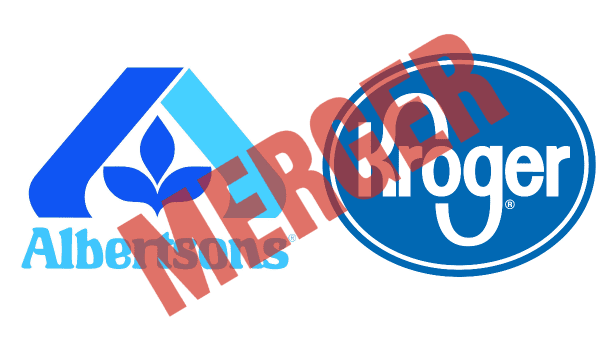You have read it in every mutual funds prospectus: past performance does not guarantee future results.
This principle should perhaps be applied to the Federal Trade Commission (FTC)—specifically its coming ruling on the proposed Kroger-Albertsons merger.

Some people in the industry seem to believe that the merger will go through—well, just because they always have.
But the FTC of the present is not the merger-friendly FTC of the past. There are many reasons to believe that under the Biden administration, it wants to bring antitrust actions back to their originally stated purpose: to foster competition in the business space.
I have discussed this in previous articles, but recent reporting from Axios gives more backing for this argument.
Former FTC policy director David Balto (who has provided legal counsel for supermarket chains including Ahold Delhaize) and an unnamed source familiar with FTC’s thinking have been quoted as believing the agency will challenge the merger.
FTC commissioner Lina Khan has already voiced her doubts: “If there’s a merger that is presenting a lot of risk of reducing competition, may even create a monopoly, you know, we need to weigh those risks, and especially given that some of these remedies in the past have failed.”
She was thinking of the much-criticized Albertsons-Safeway merger of 2016.
Khan’s appointment to the FTC by President Biden in 2021 was largely inspired by her powerful antitrust statements in academic articles. One criticized the Albertsons-Safeway merger; another, still more prominent article, was aimed at Amazon. In it, Khan advocated “restoring traditional antitrust and competition policy principles” as opposed to the then-prevalent criterion of real or imagined benefits to consumers. Lina Khan – Wikipedia
Hence the current antitrust suit against Amazon comes as no surprise.
Some hope that Kroger’s appeals to unions and its promise to preserve front-line jobs will appease the FTC.
But Khan sounds skeptical: “Enforcers sometimes have allowed mergers to go through and accept those promises and commitments,” she commented. “But historically, it’s been very difficult to even enforce them.”
Balto has been quoted as saying that he thinks FTC will win in the end.
As I have suggested, that seems likely—unless Albertsons and Kroger can hold off a final ruling with legal challenges until the 2024 election. If a Republican president is elected who wants to go back to the old criteria for mergers (which stretch back to the Reagan administration), the FTC could resume its old ways. If President Biden is reelected, or another Democrat, we can expect the FTC to pursue its current course.
In any case, the legal back-and-forth seems likely to continue into 2025.
Oh, by the way: even people who think the merger will go through often acknowledge that it will not be good for growers.



